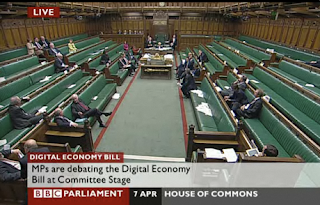This wasn't meant to be a blog post; I have been trying to put together an infographic for an event I work on in Indonesia (infographic to be mainly about economics, investment and infrastructure) and as part of that did a search for other infographics about Indonesia and the region so I didn't repeat anything and maybe get some top tips. I was making notes as I went and thought that it would make quite a good blog post. So here you go!
I guess the digital marketing nature of infographics meant most of the ones I have found are about 'Digital Marketing'. (click on links for complete infographics):
INDONESIA – GENERAL INFORMATION (undated)
Beautifully designed infographic giving top-line information on Indonesia – population, area, history, economy - from a US graphic designer. No source or date though, so I probably wouldn’t quote it!Pros: Beautifully designed infographic with what looks like quite extensive information
Cons: No date or source, so difficult to be sure of accuracy
Interesting stat: "Indonesia is made up of 17,508 islands"
 |
| Annalise Ogle | Indonesia |
INDONESIA - THE NEXT BIG THING IN DIGITAL MEDIA (March 2011)
Although 2 years out of date, provides some nice simple stats on digital usage in Indonesia from the Singapore Management University (SMU).
Pros: Some interesting (albeit old) trends for anyone looking at marketing (especially digital) in Indonesia
Cons: 2 years out of date now. Best used as ‘trends’ rather than solid facts
Interesting stat: "Indonesia has more Facebook users than the population of Canada"
 | |
| Indonesia: The Next Big Thing In Digital Media |
DIGITAL MEDIA IN INDONESIA (Nov 2011)
Well, it’s more about social media than ‘digital media’ but goes into depth about Twitter and Facebook. Again, a little old (Nov 2011), but some nice graphics. Also from SMU.Pros: In-depth information on social media, especially Facebook and Twitter
Cons: A little out of date now and some of the comments don’t actually make sense
Interesting stat: "Thursday is the busiest Twitter day in Indonesia" (in Nov 2011)
 |
| Indonesia To Become A Leading Nation For Tech Start-ups? - Tech in Asia |
BURSON-MARSTELLER ASIA-PACIFIC SOCIAL MEDIA (April 2011)
I was hoping there may be a more recent edition of this by now, but it seems like this was a bit of a one off (this company did publish a Global Social Media Check-Up in 2012 which is also worth a look). Anyway this is still an extensive (22 pages) analysis of social media in Asia Pacific.Pros: Loads of information here split by country if you’re looking at social media across this whole region
Cons: Sorry, it’s also a year and a half old.
Interesting stat: "16.5% of Indonesians use the Internet" (think of the potential to grow!)
 |
| Asia Internet Insights from Burson-Marsteller |
INDONESIA MARKET OVERVIEW – MOBILE (Jun 2012)
This overview of the Indonesian mobile market is compiled by mobile company InMobi and gives a nice top level view on growth and use of different mobile handset brands.Pros: Good info on handset usage
Cons: Not hugely helpful with regard to mobile marketing trends (beyond ad impressions)
Interesting stat: The prominence of Nokia and Samsung is interesting especially if you are used to the dominance of iPhones in some European and North American countries.
 |
| Indonesia Mobile Ad Market Doubles in a Year, Android Growing Fastest - Tech in Asia |
TOP FACEBOOK PAGES IN INDONESIA (updated monthly)
This infographic seems to be published monthly by SocialBakers on We Are Social. Does what it says on the tin, gives you the top performing Facebook pages in Indonesia.Pros: Gives you the current Facebook zeitgeist of brands and very up to date
Cons: Not much other Facebook analysis
Interesting stat: The two most prominent fan pages are Blackberry and Blackberry – showing the importance of this brand in Indonesia. Apple who?!
 |
| Top Facebook Pages in Asia, Feb 2013 [Part 1] | We Are Social Singapore |
And finally...
IS INDONESIA MORE ENTREPRENEURIAL THAN THE US? (June 2012)
This insightful blog post calls into question the content of a recent infographic that looked at entrepreneurship and innovation around the world.Whether you agree or not, he does make a good point – don’t believe everything you see – by infographics making data easily digestible they can sometimes mask the information behind them, or even be entirely erroneous. So check your sources, and do your own research where possible!
 |
| Beware of infographics, especially if the findings are too good to be true |
Monitor the online buzz around your brand (May, 2009)




